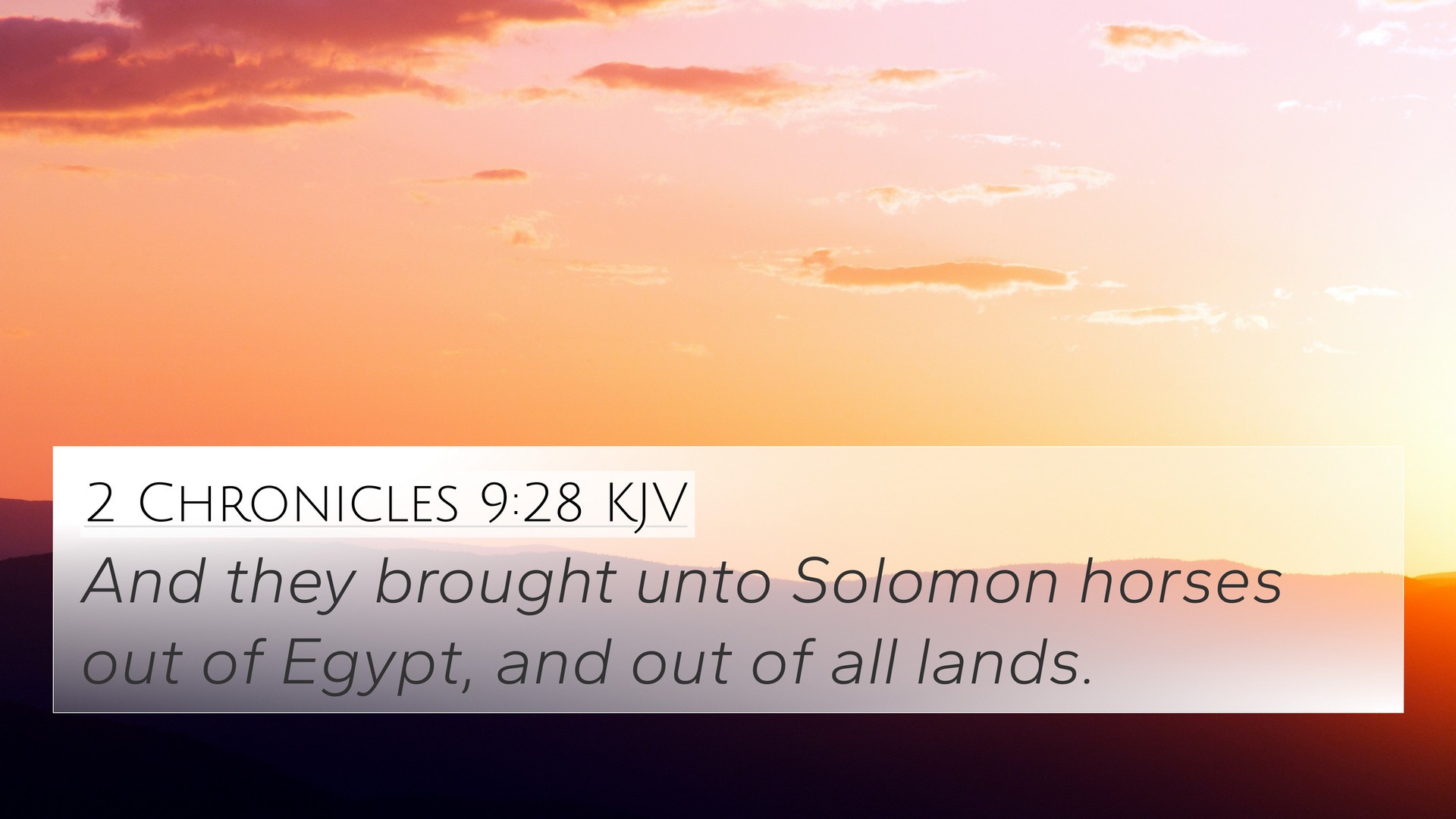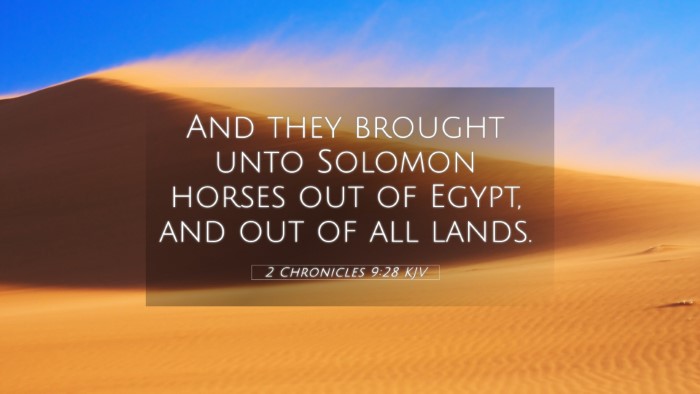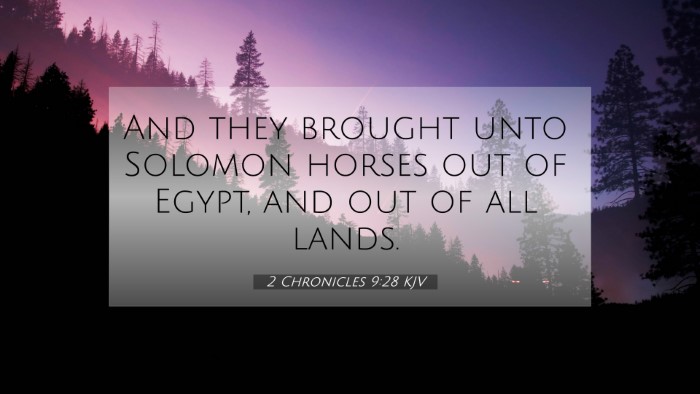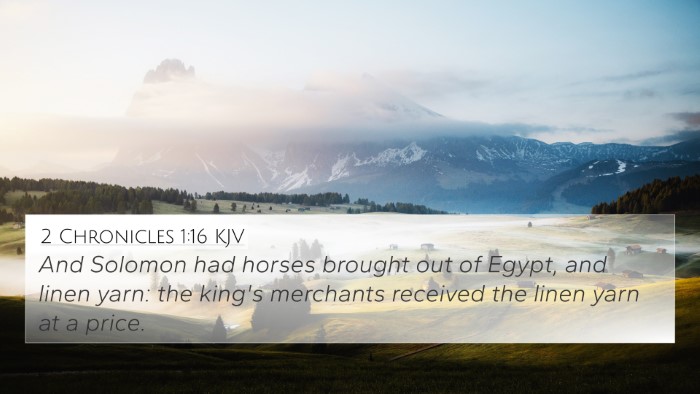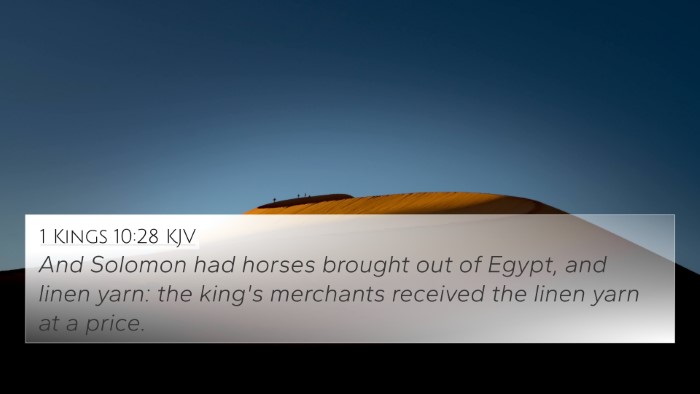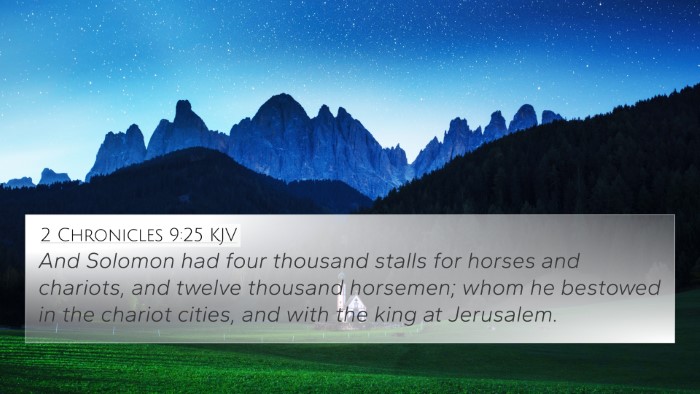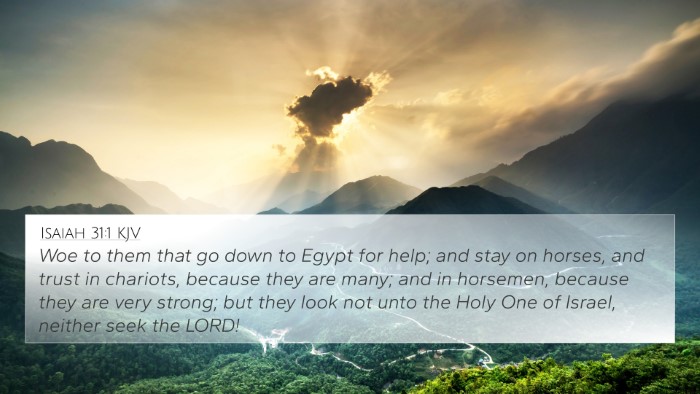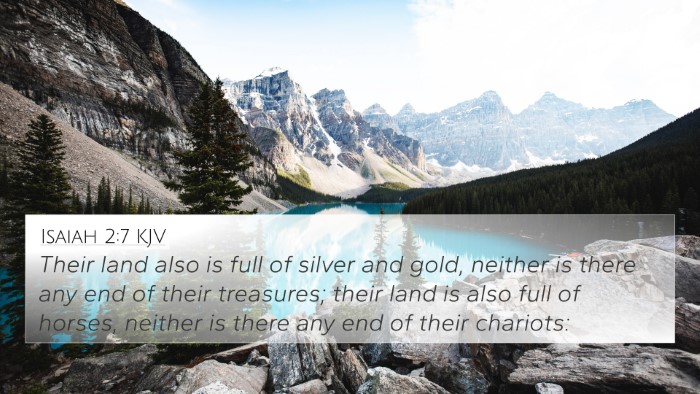Understanding 2 Chronicles 9:28
2 Chronicles 9:28 states: "And they brought unto him horses out of Egypt, and out of all lands." This verse concludes a narrative that highlights the riches and international influence of King Solomon during his reign over Israel. The significance of this verse can be explored through various public domain commentaries to gain a comprehensive understanding.
Summary of 2 Chronicles 9:28 Meaning
This verse illustrates Solomon's extensive trade relationships and the prominence of Israel as a nation of wealth and influence. The horses, often seen as symbols of power, were highly valued in ancient times, particularly in warfare and royal contexts. Thus, this passage not only emphasizes the material wealth King Solomon accumulated but also indicates the strategic alliances he formed and maintained with neighboring nations, particularly Egypt.
Commentary Insights
- Matthew Henry: Notes the significance of the horses as a point of trade, underscoring how Solomon's reign attracted the attention of other nations. He emphasizes that this wealth was not merely for personal gain but served the greater kingdom of God.
- Albert Barnes: Comments on the practicality of Solomon acquiring horses from Egypt, a known center of horse breeding, indicating that his choices were not only wise but reflective of a well-managed kingdom.
- Adam Clarke: Highlights the historical context, linking Solomon with the horse trade from Egypt, which had deep economic ties with Israel, indicating that such relationships were pivotal for prosperity.
Connections Between Bible Verses
Thematic connections can be made between 2 Chronicles 9:28 and several other verses throughout the Bible, enhancing the understanding of Solomon's character and reign. Below is a list of relevant cross-references:
- 1 Kings 10:28-29: A parallel passage explaining the source of Solomon's imports, particularly horses from Egypt.
- Deuteronomy 17:16: A specific commandment for kings regarding horses, warning them against accumulating too many from Egypt.
- 2 Chronicles 1:14: Describes Solomon's wealth and military strength, reinforced through his collection of chariots and horses.
- Psalm 20:7: A reminder that some trust in chariots, but the people of God trust in the name of the Lord, reflecting on reliance versus material wealth.
- Isaiah 31:1: A warning against relying on Egypt for help, demonstrating the potential pitfalls of these alliances.
- Acts 15:28-29: In discussing the early church's guidance, there's an allusion to how God's people are to avoid certain practices, echoing concepts of obedience seen in Israel's history.
- Zechariah 9:9: Talks about a different kind of ruler (Jesus) who comes riding on a donkey, contrasting the horse's might with humility.
Thematic Bible Verse Connections
When we analyze the connections between various scripture passages, we gain insights into the broader themes of kingship, wealth, and the relationship between nations. Despite Solomon's success, the warnings found in the scriptures remind believers to focus on divine providence over material accumulation.
Cross-Referencing Biblical Texts
Using tools for Bible cross-referencing can enhance our understanding of verses like 2 Chronicles 9:28. Through a comprehensive study of inter-Biblical dialogue, one may explore:
- How to use Bible cross-references: Identifying parallels can lead to deeper insights into God’s teachings.
- Bible reference resources: Utilizing concordances or guides can help navigate themes across scriptures.
- Comparative Bible verse analysis: Examining similar stories across different books provides context and clarity.
Conclusion
In conclusion, 2 Chronicles 9:28 serves as a notable reference that showcases Solomon's influence and the extent of Israel's global interactions during his reign. Cross-referencing this verse with others adds layers of meaning, demonstrating how scripture dialogues with itself to create a comprehensive picture of faith, governance, and divine expectation for God's people.
By understanding these connections, believers can deepen their comprehension of biblical narratives and apply their lessons to contemporary life.
